Putin and the ‘Petersburg set’: The secret life of a Russian leader
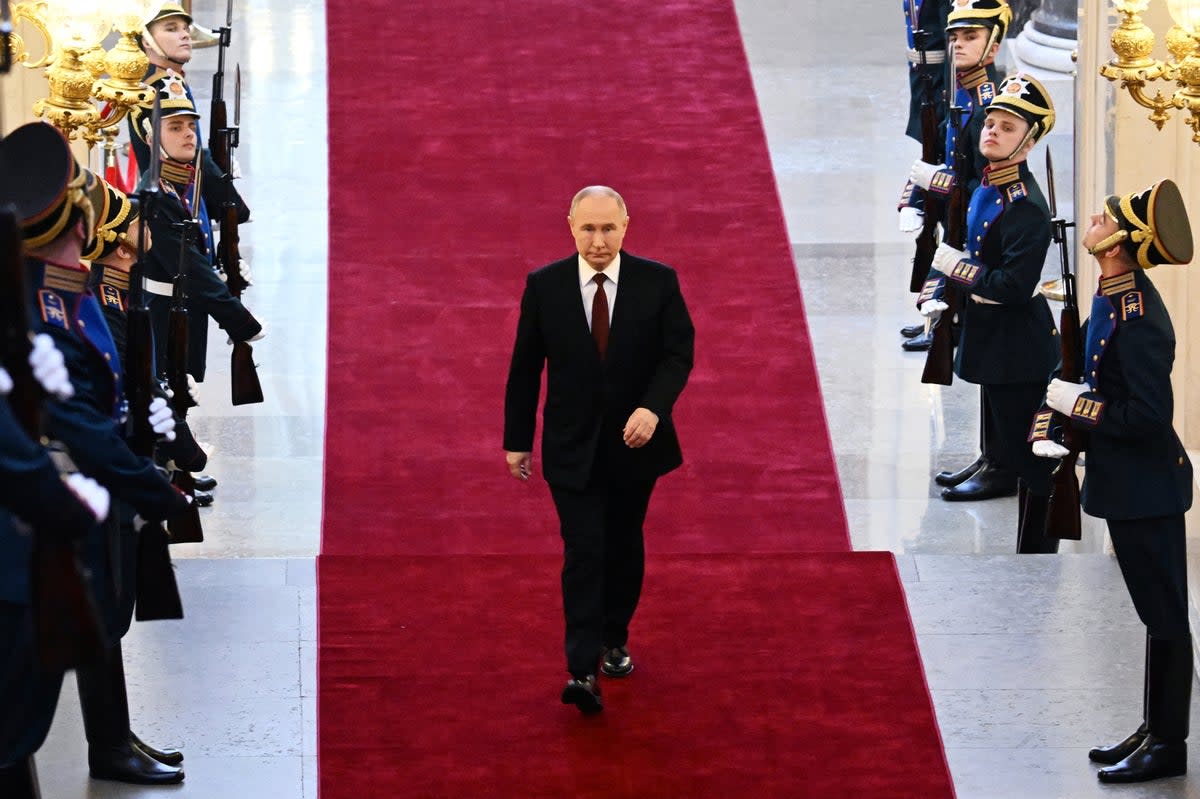
In March, 100 million Russians and a further 6 million living in occupied Ukrainian territory got a taste of what democracy, Vladimir Putin-style, looks like – which is, as the droll Russian saying has it, “an election without a choice”.
The sense of inevitability of the result, alongside the near-total concentration of power in the Kremlin, means that the opposition had already been dealt a death blow. Literally so, in the case of Alexei Navalny, the charismatic dissident who died of mysterious causes in an Arctic prison camp in February.
The intimidation is spreading: Navalny’s close ally Leonid Volkov was attacked a few months ago with a hammer in Lithuania, in what he termed a “gangster greeting from the Kremlin” who “wanted to make a schnitzel out of me”.
But what does this grim state of affairs tell us about the mind and mood of a man who ascended from the rough and tumble of St Petersburg politics to the Kremlin in 2000, and whose career I have watched closely since the declining years of Boris Yeltsin – when Putin leveraged the political and economic chaos to arrive in the top job as a “cuckoo in the nest”, as one dismissive Yeltsin ally put it?
A quarter of a century on, Russia’s unhappy nest is firmly in his grip, and now comes with a new strand of overt aggression.
Putin’s KGB background and suspicion-prone personality mean that he is attracted to “might is right” doctrines of power. He also busies himself for hours reading the works of Russian thinkers touting the “Eurasia” thesis, which describes, as Putin puts it, “a unique country-civilisation and a vast Eurasian and Euro-Pacific power”. This is the grandiosity that now underpins Putin’s view of Russia as an exceptional country with entitlements to match, but his international ambitions contrast starkly with his narrow circle at home.
The most consistent people around the president are Igor Sechin, who heads the vast Rosneft state oil concern, and Nikolai Patrushev, a former head of the FSB spy agency and now the secretary of the Security Council of Russia, whose anti-Americanism is said to outstrip even Putin’s growing paranoia.
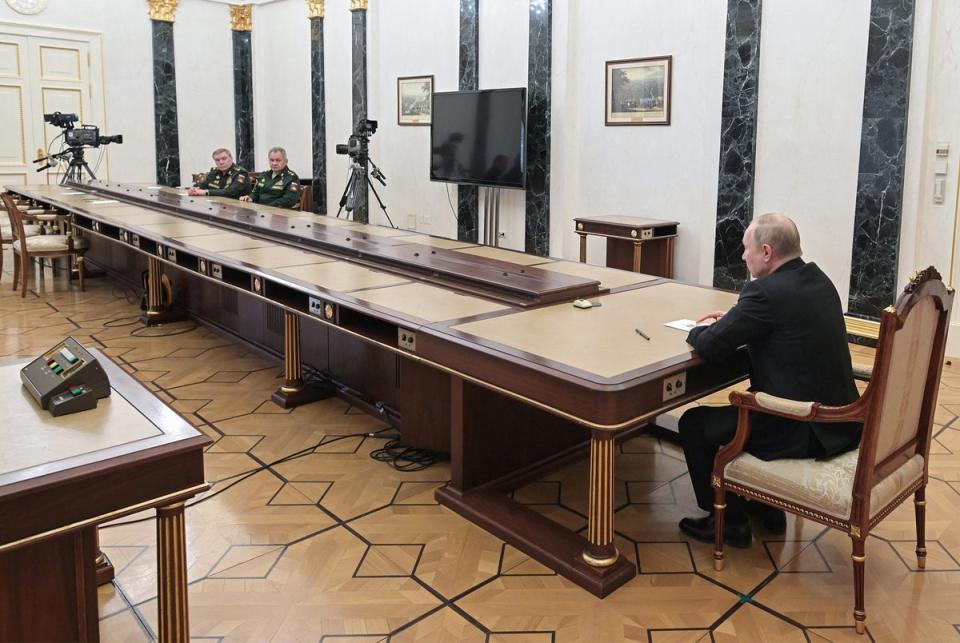
Like Putin, Patrushev is steeped in a KGB background of disinformation – abetted by Sergei Naryshkin, the head of Russia’s foreign intelligence agency, the SVR. But the war in Ukraine has shown that even these ties can fray abruptly. Putin often indulges a public mean streak, subjecting high officials to open humiliation if they stray off message or if his desires have proven hard to fulfil.
As an example, Naryshkin was openly bullied by the president at a hearing in 2022. As the intelligence titan appeared to hesitate in recommending the full integration of Russian-held areas in Donetsk and eastern Ukraine, Putin snapped “Speak plainly” to his stuttering ally. “So, you want to negotiate with them – or what?” The awkward encounter was intended to show that no title or record is ever enough to guarantee invulnerability.
Putin’s world is overwhelmingly a man’s one. In the routine hearings of senior officials and televised video calls with the regional chiefs, you see circles of men, between 60 and their mid-seventies, attempting to outdo each other in praising the 71-year-old leader.
Women are seen as being useful for propaganda purposes; most prominently Margarita Simonyan, a strong Kremlin supporter who rose to become editor-in-chief of the state broadcaster Russia Today and now acts as lead propagandist on the main TV and video channels. As a report by the state department puts it, “serving up lies as truth – with a smile”.
Part of the personal Putin mythology is that he is so devoted to his work that, leaving aside the carefully choreographed images of him on horseback, swimming or playing ice hockey, there is little time for a social life or real friendships.
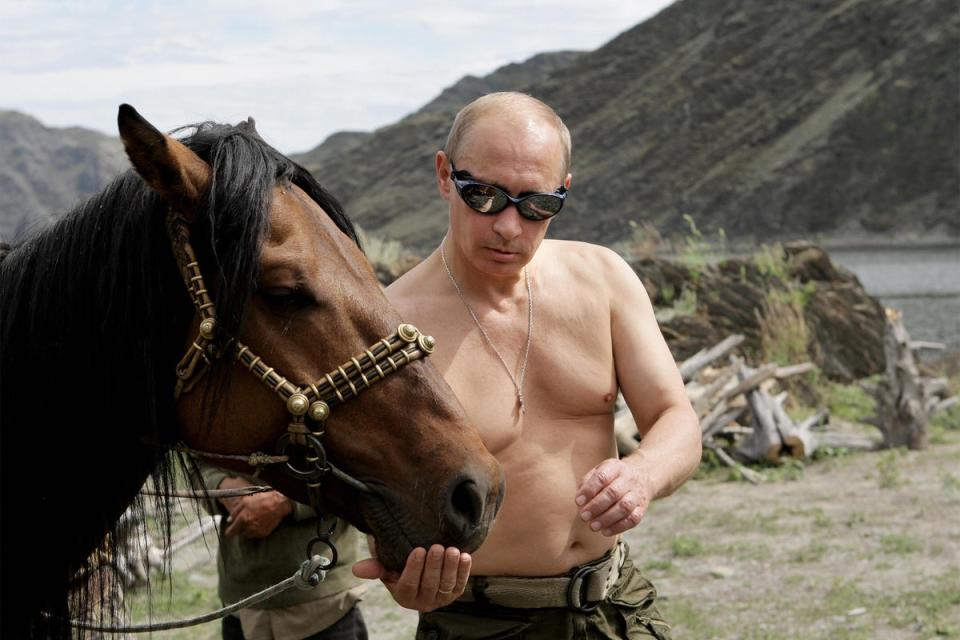
Personal alliances tend to reach back to his years as an aide to the powerful and corruption-prone mayor of St Petersburg, Anatoly Sobchak – the “Petersburg set” keep seats at the top table. Other long-standing “friends” are often closely tied to financial dealings, like the billionaire brothers Boris and Arkady Rotenberg.
His personal life is well guarded. Putin has reportedly been in a relationship with the former Olympic rhythmic gymnast Alina Kabaeva since 2008, although he remained married to his second wife Lyudmila Ocheretnaya until 2014.
He has had speech training, according to a linguistics and dialect coach, to break the habit of rat-a-tat short sentences, which cloaked his nervousness in his early years in politics
Kabaeva, with her erstwhile public profile as a glamorous sports icon, artlessly fielded questions in 2008 about her relationship with the Russian leader with a simple statement about his being “a wonderful man, a great man”.
But that period of unguarded comment has long ended: Kabaeva entered the Putin power apparatus, serving in the Russian parliament and signing hardline legislation, including laws opposing the adoption of Russian children by foreigners. She has since taken a board role in the National Media Group on a multimillion-pound salary, despite having no previous media experience. Those close to Putin are rewarded richly. Kabaeva’s sister was given a plum legal post in Tatarstan (her family is half Tatar).
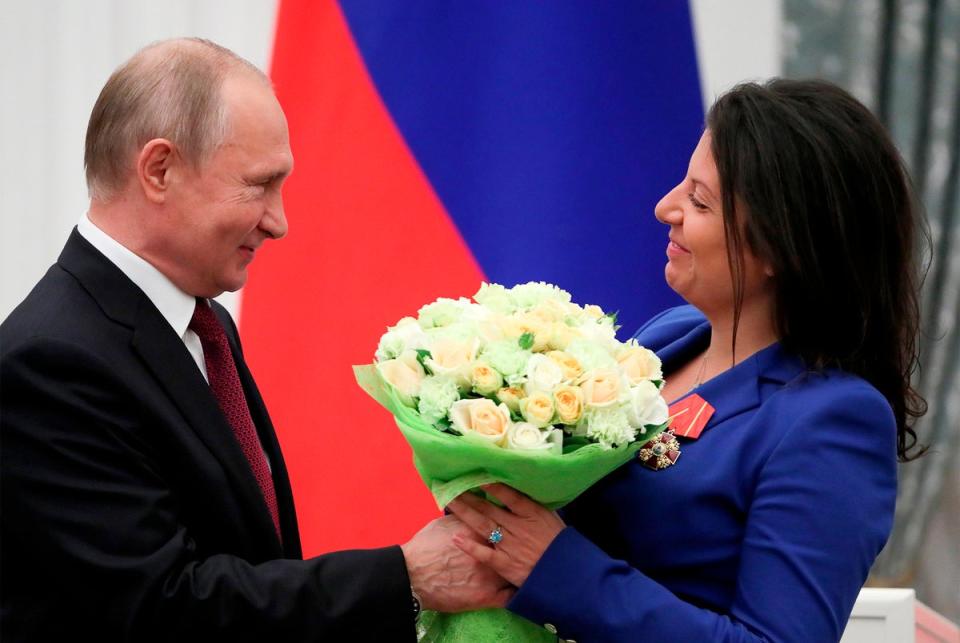
Putin doesn’t see the need for an official role of “first lady”, much to the frustration of some. When I interviewed Alla Verber, the legendary fashion buyer dubbed the Russian “fairy godmother of fashion”, before her death in 2022, and asked her how the Kremlin did its clothes shopping (Putin and Kabaeva both have a taste for luxury, from watches to fur), she was frustrated at the lack of a first lady to dress in public.
“I’ve never seen anyone from over there,” she sighed, gesturing towards Red Square. “But they send people over for things. Not like it was with Raisa Gorbacheva – now, that was a first lady!”
Paranoid about his privacy being invaded, Putin has forced the closure of media outlets that reported on his relationship and the size of his family – he appears to have six children, from the two long-term relationships and one fling, but has never confirmed this.
One broadside was that he “always despised those who stick their snotty noses in personal business to gratify their erotic fantasies”. Note the authentically coarse tone of the “street” language that Putin resorts to when he is roused to anger. He has had speech training, according to a linguistics and dialect coach, to break the habit of rat-a-tat short sentences, which cloaked his nervousness in his early years in politics.
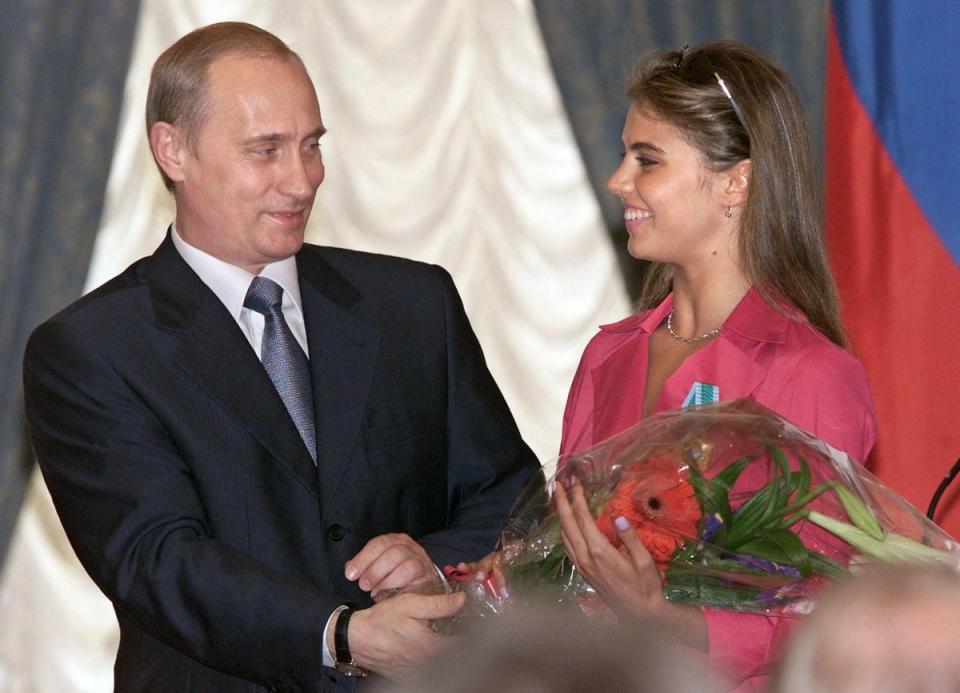
He now speaks in polished Russian, with a hint of Petersburg inflection. The “real” Putin, however, resorts rapidly to the uncouth language of his youth and KGB heritage – talking of “flushing enemies down the toilet”, for example, which is seen by many as a crude euphemism for assassinations.
Putin has never been comfortable outside Russia – or with Russians who reside for too long in the West. One native celebrity who has long jetted between her homeland and Western Europe tells me that, for Putin, “not living full-time in Russia is already a suspicious sign”.
Another former media magnate who lives in the UK recalls how, during a conversation with the president a few years ago about an old acquaintance from Moscow who was marrying an English woman, Putin barked: “Why does he have to do that? When we have thousands of beautiful women of our own.”
Putin’s tendency towards suspicious thinking has intensified since the lockdown. His paranoia about catching Covid was so intense that guests had to sit at an absurdly long table, and his own teams were made to shower with disinfectant in tunnels beneath the Kremlin before meetings.
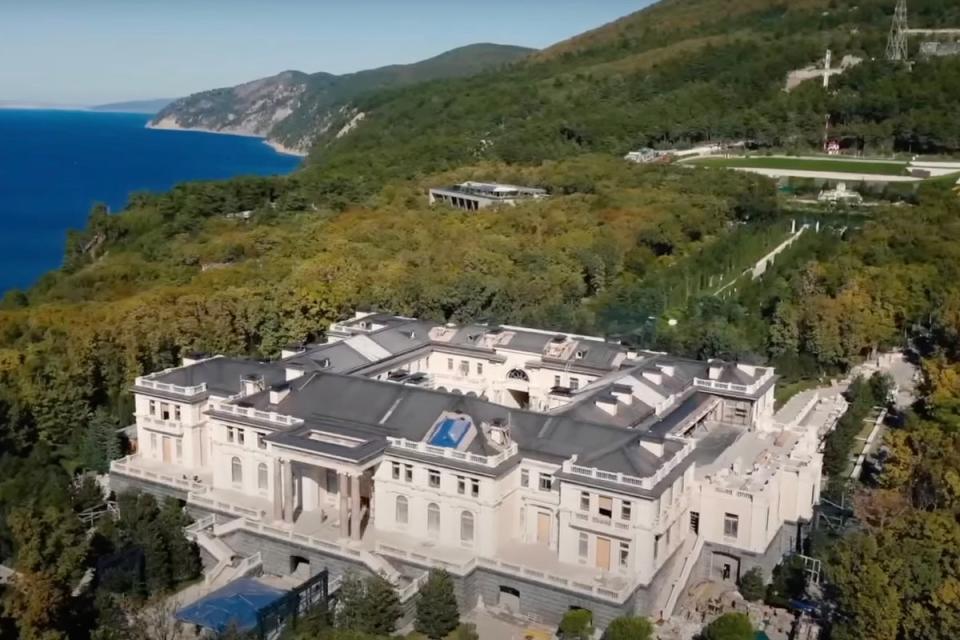
His personal wealth and resources are astronomical – and his deadly conflict with Navalny was fed by his opponent’s team’s collation of embarrassing videos about the vast “Putin’s palace” complex on the Black Sea, paid for by oligarchs reliant on Putin’s goodwill. However, there is scant indication that Putin spends time there.
Some formerly close oligarchs speculate that, given the advanced security system, the no-fly zone around the complex and the private sea access, it is intended as a “last resort” hideaway, to be used in the event that Putin is ever removed from power or needs to leave the country. If that sounds like a distant prospect, it is worth remembering that very few Kremlin leaders have left their positions of their own volition.
The Russian elections remind us that all meaningful power in Russia now sits in the hands of one man – who is both unaccountable and ageing. The constitution was fixed to allow the Kremlin leader to stand for a fifth term – with a possible extension in 2030. But an end will one day come. When I ask one London-based oligarch what he thinks will happen after Putin, he replies simply: “After Putin, more Putin.”
Anne McElvoy is the executive editor of Politico and the host of the weekly ‘Power Play’ podcast

 Yahoo News
Yahoo News 
